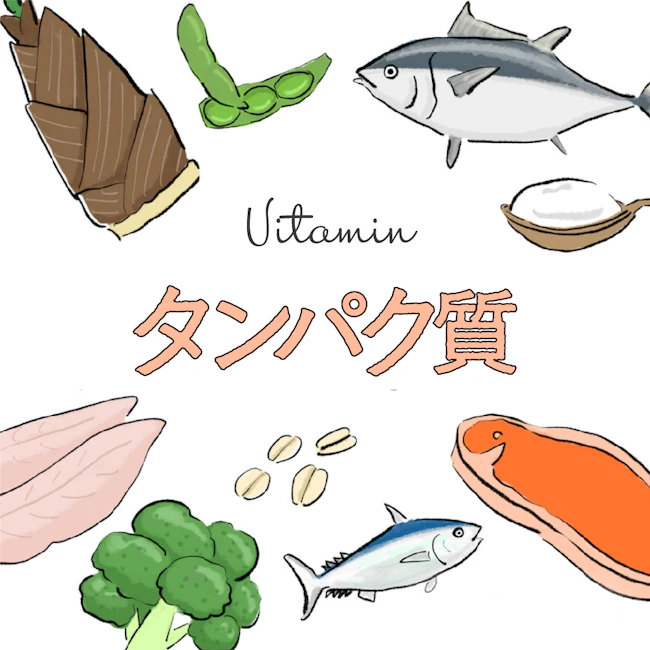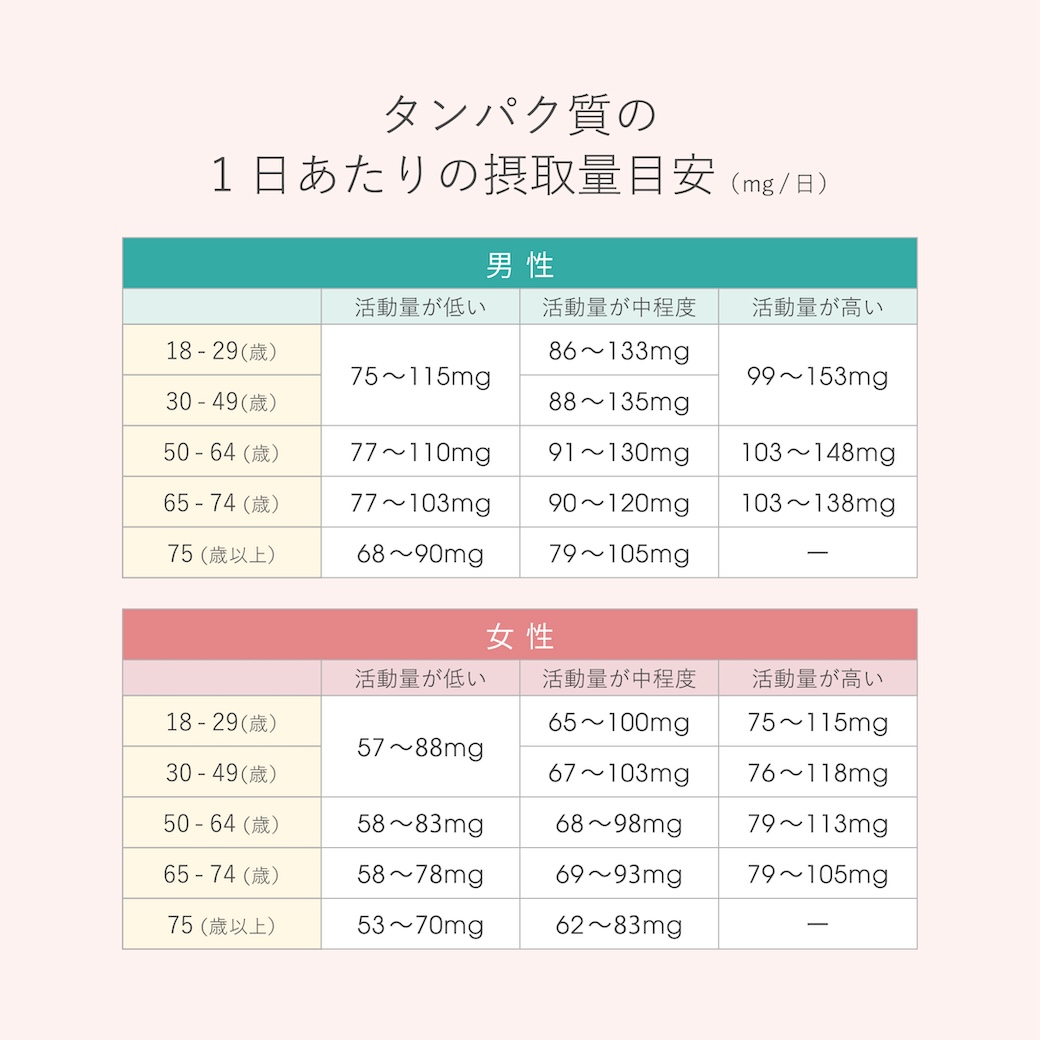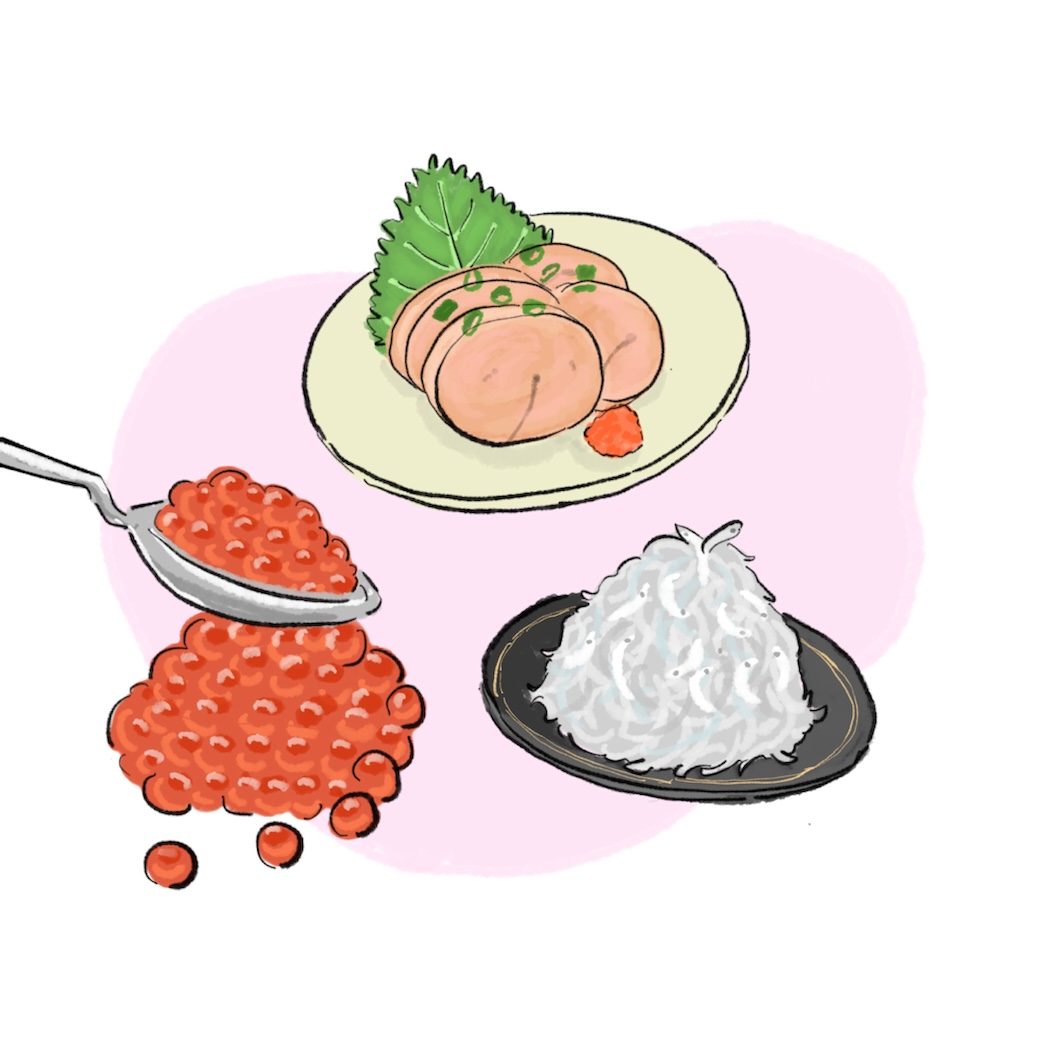
What foods are high in protein? Here are some tips for taking them effectively and the recommended amount.
SUMMARY
- What is protein?
- ・Foods high in protein
- ・Recommended protein intake
- ・Key points for taking protein effectively
- ・Nutrition that can be expected to have a synergistic effect
- ·summary
Protein is essential for maintaining health and muscle strength.
It is recommended that you consume approximately 0.66g of protein per kg of body weight each day, but to achieve this you need to include foods high in protein in your diet.
In this article we will discuss in detail foods that are high in protein.
What is Protein?
Protein is one of the energy-producing nutrients and is an important nutrient that creates the basic components of the human body, such as muscles, internal organs, skin, nails, and hair.
It also has the function of regulating the physical condition of antibodies, hormones, enzymes, etc.
High-quality protein contains essential amino acids that the body cannot produce and must therefore be obtained through the diet.
Eating enough protein supports various functions that maintain health, such as muscle repair and growth, maintaining immune function, and providing energy. It is important to incorporate a balanced amount of protein into your daily diet to live a healthy life.
Foods high in protein
Protein intake is essential to maintain a healthy lifestyle.
Here we will introduce in detail the types of foods that are high in protein, such as meat, seafood, eggs, soy products, and dairy products.
● meat
Among the meats that are high in protein, lean chicken and pork are especially recommended as they are low in fat and healthy. Chicken fillets and chicken breasts are also widely known as low-calorie, high-protein foods.
Chicken breast in particular is low in fat and is perfect for people on a diet. Pork loin has a lot of lean meat, so you can get plenty of protein, but if you cut out the fat, you can reduce your lipid intake.
These meats are a great way to support muscle strength while enjoying a healthy diet.
● seafood
Seafood is an excellent source of protein.
Red fish is high in protein and also rich in high-quality fats that contain large amounts of polyunsaturated fatty acids such as EPA and DHA.
White fish are also high in protein but low in fat, making them healthy. Some fish contain astaxanthin, a natural pigment with strong antioxidant properties, which is said to be good for your health.
Shrimp also contains as much protein as chicken breast, although this varies depending on the variety.
Including these fish in your daily diet is an easy way to get quality protein along with other nutrients.
● Vegetables
Vegetables contain less protein than other foods, but they are rich in vitamins and minerals, which helps to balance your nutrition.
Edamame, in particular, is high in protein and is one of the ingredients you should include as a side dish.
Broccoli is rich in vitamin C and potassium, and provides a small amount of protein.
Bamboo shoots also contain protein and are rich in dietary fiber and vitamins, making them an excellent addition to any dish.
Although incorporating these vegetables into your diet will not be enough to replenish your protein intake, it will still provide you with the other nutrients that are important for building your body.
● Soy products
Soy products are low in calories and are an excellent source of protein for your diet.
Natto in particular is rich in protein, low in calories, and as a fermented food, it also has the effect of regulating intestinal flora.
You can also easily consume protein by adding kinako to yogurt or smoothies.
If you're looking for something healthy, high in protein, and filling, we recommend ganmodoki.
It is a food made from tofu, so it is filling and contains high-quality protein. If you use soy products wisely, it can also be useful for dieting.
● Cereals
Grains are a staple food that we consume on a daily basis, but they also contain protein.
Oatmeal in particular is rich in dietary fiber and protein, and helps prevent a sudden rise in blood sugar levels and provides an energy source, making it a recommended breakfast or snack.
In addition, white bread and white rice are known as sources of carbohydrates, but they also contain small amounts of protein and can be easily consumed in daily meals. By consuming enough staple foods, you can achieve a balanced nutritional intake and a healthy diet.
● Eggs and dairy products
Eggs and dairy products are also rich in protein.
Eating 1 to 2 eggs a day is a great way to meet your protein needs.
The great thing about chicken eggs and quail eggs is that they are easy to incorporate into cooking and can be used in a variety of menus.
In addition, milk, cheese, and yogurt contain a high-quality protein called "whey protein," which is effective in maintaining and recovering muscle.
By adding these foods to your diet in a balanced way, you can easily replenish the protein your body needs.
Protein Intake Guideline
The recommended protein intake varies depending on your age, activity level, and health condition.
Below are the daily protein intake targets set by the Ministry of Health, Labour and Welfare, divided by gender, age, and activity level (three levels).
Source: Ministry of Health, Labor and Welfare "Dietary Reference Intakes for Japanese" 2020 edition
https://www.mhlw.go.jp/content/10904750/000586557.pdf
Tips for taking protein effectively
To effectively ingest protein, it is important to be creative with your daily meals. Here are two important points for efficiently consuming protein.
Practicing these methods can have a positive effect on your health and muscle maintenance.
● Incorporate a variety of foods
When consuming protein, it is important to consume a variety of foods. Because the types and amounts of amino acids contained in protein vary from food to food, it is difficult to consume the necessary amino acids in a balanced manner from just one food.
Eating only one type of food can lead to nutritional deficiencies and affect your physical condition. By combining different protein sources such as meat, fish, and beans, you can achieve a balanced amino acid intake and a healthy diet.
● Eat evenly at each meal
It is important to consume protein evenly at each meal. Even if you consume a large amount at once, there is a limit to how much your body can absorb, so it is recommended to consume a consistent amount of protein three times a day.
Skipping breakfast in particular can lead to a lack of energy and poor health, so it is important to include foods that contain protein in your breakfast. By consuming protein evenly throughout your daily meals, you can maintain a stable energy supply and good health.
Nutrients that can have synergistic effects
Protein can be more effective when combined with other nutrients. Here are two nutrients that have a synergistic effect when consumed together with protein.
● Vitamin B
To get the most out of protein, it is important to consume B vitamins.
Vitamin B6 in particular supports protein metabolism and ensures efficient use in the body.
Foods that are rich in it include tuna, salmon, liver, and bananas.
In addition, vitamin B12 is found in large amounts in clams, roasted seaweed, and beef liver, and plays a role in maintaining normal nerve function.
Additionally, vitamins B1, B2, and B6 aid in protein absorption and aid in energy production.
By consciously consuming B vitamins, it is possible to improve protein absorption and utilization.
● Vitamin D
Vitamin D is a fat-soluble vitamin that is an important nutrient that activates proteins in the body.
It also promotes calcium absorption.
It is an essential nutrient, just like protein, especially for those who want to maintain muscle strength. Vitamin D can be obtained from food, and also produced in the body by exposure to sunlight. It is found in large amounts in foods such as salmon and monkfish liver, dried whitebait, and salmon roe, and actively consuming these foods can help grow and maintain muscles.
summary
Protein is one of the nutrients essential for our health.
By consuming a balanced diet from a variety of ingredients, you can improve your physical condition and support a better lifestyle.
In addition, by combining nutrients that enhance protein metabolism and absorption, such as B vitamins and vitamin D, you can efficiently take in nutrients and maintain your health.
Article supervision

Professor Kiyotaka Ishida
Hiroshima Station Clinic
He is a hepatology specialist and chairman of Hiroshima Station Clinic. He has been treating viral hepatitis and hepatocellular carcinoma at a major hospital for many years, and has extensive experience in oral drug treatment for viral hepatitis, radiofrequency ablation therapy and catheter therapy for hepatocellular carcinoma. He currently provides thorough nutrition and exercise guidance for lifestyle-related diseases such as fatty liver and diabetes based on diagnostic imaging and nutritional analysis data, aiming for drug-free treatment. He will open the anti-aging center "Milky Cloud Well-being Center" in January 2023. He is the author of "2-week iron activity to improve your life" (Gentosha).








